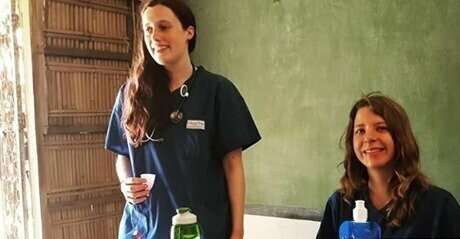International Women’s Day 2021
Today is International Women’s Day, a day to celebrate the achievement of women globally and to raise awareness of difficulties that women continue to face. This year’s theme #choosetochallenge is a way for organisations and communities to unite in challenging gender inequality and discrimination of women worldwide.
Bangkok Rules
2020 marked ten years since the Bangkok Rules were established by the UN to ensure appropriate treatment of women prisoners and protection of their human rights. This includes women awaiting trial, those serving prison sentences and also those with sentences other than imprisonment. They also protect the rights of children who accompany their parents to prison. These 70 rules include guidance on gender-specific healthcare, rehabilitation and training, which supplements the Standard Minimum Rules for the Treatment of Prisoners, also known as the Nelson Mandela Rules.
Within the basic rules on personal hygiene, rule 5 states:
The accommodation of women prisoners shall have facilities and materials required to meet women’s specific hygiene needs, including sanitary towels provided free of charge and a regular supply of water to be made available for the personal care of children and women, in particular women involved in cooking and those who are pregnant, breastfeeding or menstruating.
In 2019 the UK announced it would provide free sanitary products to all female prisoners. However this is an unusual exception: around the world, it is so common for women prisoners to face difficulty accessing soap and water to keep themselves clean during their periods, let alone have the sanitary products they also need. And these challenges are on top of the stigma and shame attached to menstruation in many cultures.
Period Poverty
‘Period Poverty’ is the term used to describe the inability to access sanitary products and adequate hygiene measures due to the lack of financial resources. It also relates to a lack of education for boys and girls on menstruation and hygiene. Period poverty leads to many girls and women missing out on their education, and also prejudicial treatment in many communities.
In 2015 the UN General Assembly set out 17 sustainable development goals to make the world a better place by 2030, through addressing poverty, inequality and climate change. Within these goals, numbers five (gender equality) and six (clean water and sanitation) directly address period poverty:
Target 5.1: End all forms of discrimination against all women and girls everywhere.
Target 6.2: By 2030, achieve access to adequate and equitable sanitation and hygiene for all and end open defecation, paying special attention to the needs of women and girls and those in vulnerable situations.
These targets are important for all of us as we aim to end period poverty.
Period poverty in prison
A recent article by Prison Reform International highlighted how many female prisoners experience period poverty, especially in low and middle income countries (LMICs). All too often, women are dependent on visitors to bring them sanitary protection. Yet they are frequently reluctant to even ask their male relatives - and these relatives often do not think to consider their incarcerated relative's feminine hygiene needs. And during the COVID-19 pandemic, most prisons and other secure environments have drastically reduced - often completely stopped - visiting rights. Our own police custody welfare service in the Philippines has seen first hand evidence of just how much women detainees are struggling during lockdown. Mam Loy (pictured above), our Philippines Operations Manager, explains more:-
The cells are 8x7 foot and they usually hold about 20 detainees. They share one toilet separated by a thin wall from the rest of the cell. Those most recently incarcerated struggle the most to use the toilet, given the proximity to the other women.
Comparisons
It is hard for Europeans and other High Income Country readers to conceptualise this level of space restriction. 20 detainees in 8x7 feet equates to just less than 0.25 square metres per woman, which is 16 times more crowded than the minimum level of personal space permitted in the standards for European prisons set by the European Committee for the Prevention of Torture and Inhuman or Degrading Treatment or Punishment (CPT).
The Solution
While not all governments can immediately adopt the Bangkok Rules, our own organisation - Integritas Healthcare - has been giving this matter serious consideration since the end of 2018. In 2019, a team of healthcare professionals set about educating a cohort of Filipina remand prisoners on the use of menstrual cups, giving out a cup to every woman who attended our seminars and wished to try one. The pandemic prevented our planned 2020 follow-up research from taking place. However, as soon as possible, we will be reactivating this research stream. If this research proves that menstrual cups are popular and feasible to use within Philippine detention settings, we aim to start issuing them as standard to any Filipina detainee within our care.
In the meantime, we are trying to help as many Filipina detainees as possible with conventional sanitary protection. If you'd like to help us do this, our #Coronacash appeal is in ever great need of funds. And we are happy to respect requests that donations be used purely for menstrual hygiene.
What can you do?
Creating awareness around period poverty is vitally important. Talking about it will start to break the walls of stigma attached to menstruation. Why not take to social media and use #choosetochallenge and #endperiodpoverty to start a conversation?
You could also share this article with friends and family and use the hyperlinks embedded to educate yourself further on period poverty in prison.
Closer to your own home, you could buy feminine hygiene products and donate them to your local food bank or women’s refuge.
And, once again, you could help us to help Filipina detainees in period poverty.
Whatever you do, take time this International Women’s Day to consider what you would #choosetochallenge to achieve gender equality and end discrimination.





